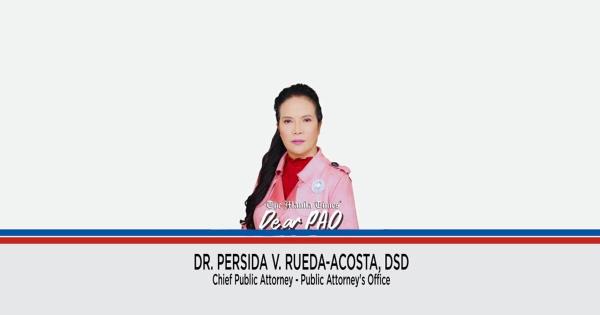2024-11-25 16:24 来源:本站编辑

亲爱的PAO,
我的邻居X被指控谋杀,声称他明显是有预谋地杀害了Y。假设案件进入审判阶段,而X被定罪,他是否可以质疑法院的判决,理由是明显预谋的指控是不准确或含糊不清的,因为涉及这种明显预谋的情况没有具体说明?
Matias
Dear Matias,
Our Constitution requires that a person accused of a crime be informed of the nature and cause of the accusation against him or her (Section 14 (2), Article III, 1987 Philippine Constitution). The right of the accused to be informed extends not only to the basic elements of a crime but also to any circumstances which may qualify or aggravate it. This right is explicitly reinforced under Section 1, Rule 115 of the Revised Rules of Criminal Procedure ("Rules"):
"Section 1. Rights of accused at the trial. — In all criminal prosecutions, the accused shall be entitled to the following rights:x x x
"(b) To be informed of the nature and cause of the accusation against him. x x x"
The remedy of a person who is accused of a crime, if the complaint or Information is imprecise or ambiguous, is to file a Motion for Bill of Particulars prior to arraignment. As stated under Section 9 of Rule 116 of the Rules:
"Section 9. Bill of particulars. — The accused may, before arraignment, move for a bill of particulars to enable him properly to plead and to prepare for trial. The motion shall specify the alleged defects of the complaint or information and the details desired." Advertisement
Alternatively, the person so accused may file a Motion to Quash prior to his arraignment. It is specifically provided for under Section 3(e) of Rule 117 of the Rules:
"Section 3. Grounds. — The accused may move to quash the complaint or information on any of the following grounds: x x x
"(e) That it does not conform substantially to the prescribed form;"
It bears emphasis that an accused who fails to avail of any of the aforementioned remedies and participates during the trial loses the right to question such ambiguity on appeal. Corollary, in the situation which you have mentioned, X may no longer question the court's judgment after his conviction if he failed to file a Motion for Bill of Particulars or a Motion to Quash prior to his arraignment and participated in the trial of his case, even if indeed the allegation as to the circumstance of evident premeditation is ambiguous. It is an elementary rule that a person should not sleep on his or her rights. Failure to timely invoke the rights guaranteed by our laws, or even our Constitution, can result in the waiver thereof. As explained by our Supreme Court, through Associate Justice Rodil Zalameda: Advertisement
"There are various procedural remedies available to an accused who believes that the information is vague or defective. Section 9 of Rule 116 of the Rules of Court provides that the accused may, before arraignment, move for a bill of particulars to enable him properly to plead and prepare for trial. Likewise, Rule 117 thereof allows an accused to file a motion to quash a patently insufficient or defective information. In both instances, Our procedural rules require the accused to avail of these remedies prior to arraignment. Hence, in order to successfully object to the information, the objection must not only be meritorious, but must also be timely exercised.
"According to the guidelines set by the Court in People v. Solar, when an information failed to state the ultimate facts relating to a qualifying or aggravating circumstance, the accused should file a motion to quash or a motion for a bill of particulars. Otherwise, his right to question the defective statement is deemed waived:
"Any Information which alleges that a qualifying or aggravating circumstance — in which the law uses a broad term to embrace various situations in which it may exist, such as but are not limited to (1) treachery; (2) abuse of superior strength; (3) evident premeditation; (4) cruelty — is present, must state the ultimate facts relative to such circumstance. Otherwise, the Information may be subject to a motion to quash under Section 3 (e) (i.e., that it does not conform substantially to the prescribed form), Rule 117 of the Revised Rules of Criminal Procedure, or a motion for a bill of particulars under the parameters set by said Rules.
"Failure of the accused to avail any of the said remedies constitutes a waiver of his right to question the defective statement of the aggravating or qualifying circumstance in the Information, and consequently, the same may be appreciated against him if proven during trial.xxx Advertisement
"For cases in which a judgment or decision has already been rendered by the trial court and is still pending appeal, the case shall be judged by the appellate court depending on whether the accused has already waived his right to question the defective statement of the aggravating or qualifying circumstance in the Information, (i.e., whether he previously filed either a motion to quash under Section 3 (e), Rule 117, or a motion for a bill of particulars) pursuant to this Decision." (People of the Philippines v. Roberto Bernardo, GR 216056, December 2, 2020)
We hope that we were able to answer your queries. Please be reminded that this advice is based solely on the facts you have narrated and our appreciation of the same. Our opinion may vary when other facts are changed or elaborated.
编者按:《亲爱的PAO》是公共检察官办公室的每日专栏。阿科斯塔局长的问题可发送至[email protected]